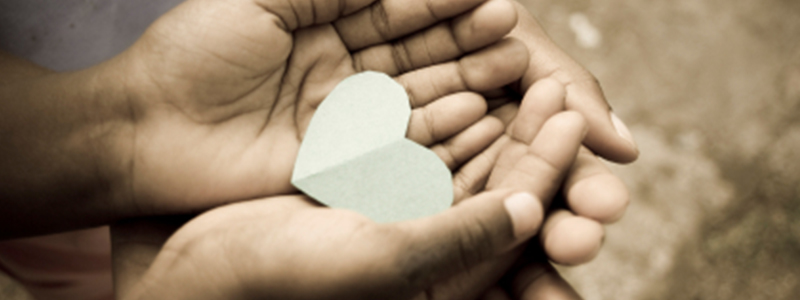Appreciate That You Are Unique
 All too often you find a superhero wishing he could just “be like everyone else”. Think about how many x-men stories involve just wanting to fit in. Yet it’s our differences that make us super. Superhero thinking says you are the only you on the planet- and someone as unique as you have a lot to share with the world.
All too often you find a superhero wishing he could just “be like everyone else”. Think about how many x-men stories involve just wanting to fit in. Yet it’s our differences that make us super. Superhero thinking says you are the only you on the planet- and someone as unique as you have a lot to share with the world.
Embrace Change
Peter Parker wasn’t expecting to get bitten by a spider while on his High School field trip. Richard Reed was not expecting a blast of gamma radiation. In the lives of all our heroes unexpected things happen which throw them for a loop. Often our heroes lose their powers, adjust to change, and then get them back again. Relationships come and go, careers change, life never seems to settle for our favorite heroes. That’s okay, a hero knows change is inevitable and does their best to adapt when things shift unexpectedly.
 Appreciate Your Past
Appreciate Your Past
All superheroes have difficult pasts. Whether it was loss at an early age, or being orphaned on a distant planet alone. Superheroes all have to learn that even the difficulties in their past are part of who made them today. Without those difficult events they wouldn’t be able to impact countless lives and develop their strengths and fully meet their potential as superheroes!
Don’t Stop Developing Your Strengths
 Did you know that Superman couldn’t always fly? It used to be that he could only jump really high; this is where they saying “jumps buildings in a single bound came from”. It wasn’t later on until he learned that he also had the power of flight. Superman continues to still develop new super powers even today. A superhero never stops striving to develop and enhance their strengths. They know what they’re good at, and continue to try and challenge themselves to test the limits of what their best truly is.
Did you know that Superman couldn’t always fly? It used to be that he could only jump really high; this is where they saying “jumps buildings in a single bound came from”. It wasn’t later on until he learned that he also had the power of flight. Superman continues to still develop new super powers even today. A superhero never stops striving to develop and enhance their strengths. They know what they’re good at, and continue to try and challenge themselves to test the limits of what their best truly is.
Take Responsibility
“With Great Power Comes Great Responsibility”. This is the phrase that propelled Spiderman to fully embrace his role as a superhero. Additionally, whenever he loses sight of who he is, this phrase brings him back. All heroes know the importance of taking responsibility. When they make a mistake, they fix it. They don’t have time to feel guilt themselves, or wish things could be different (the fate of the universe may be at stake). Instead they own their mistakes, let go of what’s not theirs, and do their best to make sure the situation is made right.
Your Strongest Superpower Is Your Character
All superheroes have an arch nemesis. It’s usually someone who is stronger, meaner, and willing to get what they want no matter who or what is in their way. The reason that nemesis loses time and time again is  because the hero has something that the nemesis doesn’t have. They have character. Superman is Superman, not because he can fly and bend steel with his bare hands. He’s Superman because of what he stands for. He’s Superman because no matter the challenge he sticks to what he believes in. All of our superheroes show this same character. They win against the bad guy because they are don’t get swayed by temptation, or lose sight of what they believe in, and they don’t compromise who they are.
because the hero has something that the nemesis doesn’t have. They have character. Superman is Superman, not because he can fly and bend steel with his bare hands. He’s Superman because of what he stands for. He’s Superman because no matter the challenge he sticks to what he believes in. All of our superheroes show this same character. They win against the bad guy because they are don’t get swayed by temptation, or lose sight of what they believe in, and they don’t compromise who they are.
Have A Sidekick
No one can go it alone. Batman has his Robin, Superman has his dog Krypto, even the Hulk needs a little help from Rick Jones every now and then. Every hero knows that the battle isn’t one just by themselves. They know when to lean on others, and when to ask for help.
At E-Counseling Essentials our therapists are waiting to help you live to your fullest potential. To be a sidekick in helping you overcome obstacles and develop your strengths to be the best Superhero you can be!

Call or email for a free counseling session today

Every January we all pick our New Year’s Resolutions. Things connected to financial, and physical health, or reprioritizing things as a new year begins. This year, may I suggest our resolution for happiness. Specifically, to engage in five practices shown to effectively contribute to a happier and healthier life.
Mindfulness
“In today’s rush, we all think too much — seek too much — want too much — and forget about the joy of just being.” ~Eckhart Tolle
Understanding that we cannot change the past, nor can we predict the future, but we do have control over what happens in the moment. Mindfulness includes body awareness, self-awareness, regulation of emotion and regulation of attention. As a therapist I often say that depression lives in the past, anxiety lives in the future, and genuine happiness comes from being in here and now. Recent research published in the journal Health Psychology shows that mindfulness is not only associated with feeling less stressed, but it’s also linked with decreased levels of the stress hormone cortisol.
Gratitude
“Gratitude makes sense of our past, brings peace for today, and creates a vision for tomorrow.” Melody Beattie
First, gratitude is an affirmation of goodness. We affirm that there are good things in the world, and acknowledge the gifts and benefits we’ve received. This doesn’t mean that life is perfect; it doesn’t ignore complaints, burdens, or challenges. But when we look at life as a whole, gratitude encourages us to identify some amount of goodness in our life.
A 2008 study by psychologist Alex Wood in the Journal of Research in Personality, shows that gratitude can reduce the frequency and duration of episodes of depression.
Service
“Lose yourself in generous service and every day can be a most unusual day, a triumphant day, an abundantly rewarding day!” William Arthur Ward
Volunteering helps people who donate their time feel more socially connected, thus warding off loneliness and depression. Service is an excellent opportunity to practice mindfulness and express gratitude in a practical way.
A 2012 study in the journal Health Psychology found that participants who volunteered with a focus of helping others, experiences positive effects on both their mental and physical health.
Forgiveness
“When you forgive, you in no way change the past - but you sure do change the future.” Bernard Meltzer
Forgiveness is the act of consciously deciding to let go of resentment or vengeance toward another entity who has harmed you in some way. Forgiveness can be practiced by developing empathy, intentionally looking for the positive in situations and properly expressing your feelings, and reaffirming healthy boundaries. For the greatest benefits, it is important to not only practice forgiveness of others, but also practice towards yourself.
Vulnerability
“What happens when people open their hearts?"
"They get better.” Haruki Murakami, Norwegian Wood
When you think about your deepest relationship both past and present, you will recognize that whatever the relationship, you’ve likely shared some vulnerable moments in it. Sometimes we fear vulnerability because it’s in those times that we are open to pain. Yet the paradox is that it’s also in those moments that we are open to healing.
Without vulnerability we may think we are protecting ourselves from pain, yet what we actually do is block ourselves from healing. Vulnerability is the true foundation to letting go of our pain and inviting change and healing. This New Year commit to opening yourself to the power of vulnerability and connection with healthy and loving people.
This new year, make your resolution to be more present in your life, to offer gratitude for whatever that moment may be, to turn gratitude into service, and through service be more forgiving of yourself and others - and in all of that embrace the vulnerability that follows because this is the fountain true healing comes from.
Joe Gorton, CMHC
E-Counseling Essentials - Online Therapy
If you are in crisis, call the National Suicide Prevention Lifeline, a free, 24-hour hotline, at 1-800-273-8255. If your issue is an emergency, call 911 or go to your nearest emergency room.